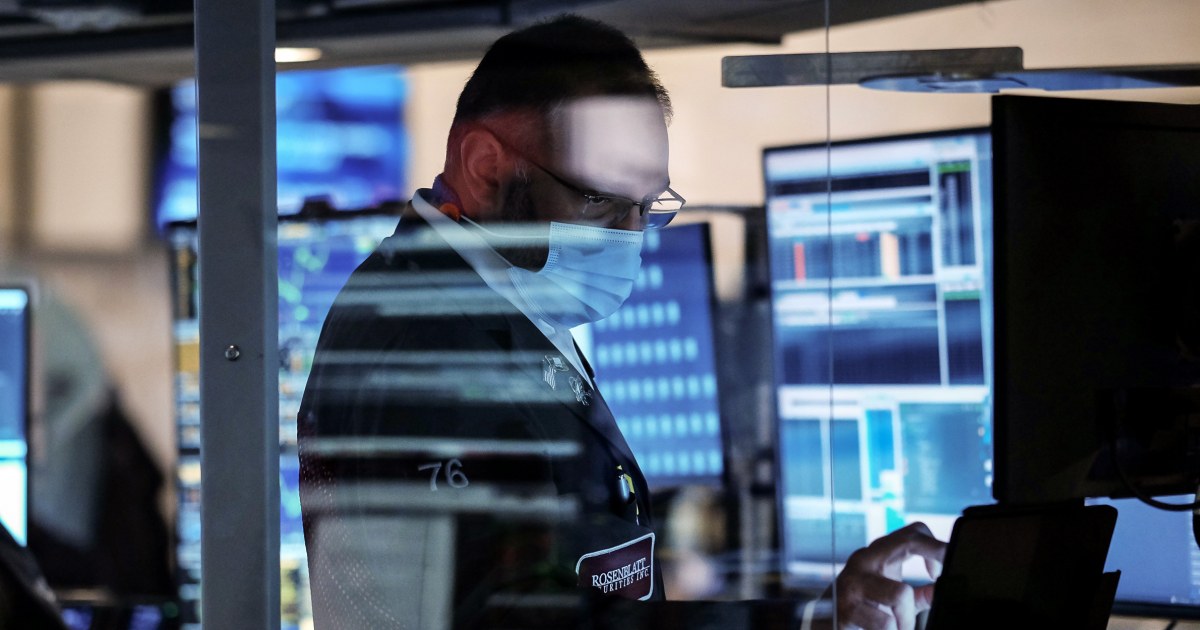
The stock market experienced stratospheric highs through the first two years of the pandemic. And perhaps most notably, a contingent of individual investors got a chance to ride that wave to the rich benefit of their personal portfolios.
The deep, swift recession that took hold as lockdowns went into effect in March 2020 ended what had been an extended recovery in employment, according to the U.S. Bureau of Labor Statistics. The year closed with 10 million fewer jobs as many U.S. workers were furloughed or laid off, left reeling from the whiplash of a world instantly changed by an invisible, deadly virus.
Headlines in those early days of the pandemic captured a collective sense of loss and helplessness among some lower- and middle-income workers unsure of the how or why of it but seeking answers and a little reassurance. For some, the despair wouldn’t last. Some people chose to leap into the stock market, emboldened in part by economic stimulus payments and access to app-based investment platforms, according to a Deutsche Bank survey published in February 2021.
Many joined stock-trading apps like Robinhood in droves. Data from a July 2021 filing with the Securities and Exchange Commission showed the company had 12.5 million funded accounts in 2020, up from 5.1 million in 2019. Online communities formed around the goal of developing personal investment strategies or, in the case of the infamous WallStreetBets forum on Reddit, finding ways to outmaneuver hedge funds and turn the screws on short sellers who had bet against the companies.
Diego Flores, 20, said he started investing two years ago. He noticed the buzz about individual investors who sought to jump into a stock-buying frenzy on Reddit and took action.
“I decided to put a little bit of money into GameStop and AMC just to see what happened. Surely enough, it started really going up,” Flores said, adding that he made $800 from a $4,000 investment in GameStop.
Dhananjay Narayanan, 20, also saw the earning potential on WallStreetBets but said he stopped short of investing.
“The GameStop stock kept going up and up. And they were talking about AMC, so when I tried to invest in some call options from AMC, Robinhood actually canceled my call option,” Narayanan said. “And that made me very upset. And I guess it made a lot of members of the community upset.”
“You advertise yourself as this company that, you know, wants to provide everyone a fair opportunity in investment. And then you as a company block certain trades from happening, because maybe you have external interests,” Narayanan said.
Robinhood had restricted some buying activity around GameStop and AMC because of market volatility in January 2021. Robinhood CEO Vladimir Tenev apologized to Congress during a hearing on the issue last year.
Equities markets saw tremendous gains through the end of 2020 after sinking to deep lows in March of that year. The rally continued through 2021, during which the S&P 500 booked 70 record closings. All told, by the end of last year, the S&P had posted a gain of nearly 27 percent. The Dow Jones Industrial Average was up almost 19 percent.
The start of the new year brought a swift market correction that wiped out much of those gains. January was the worst on record for stocks since March 2020.
Flores says his assets are struggling.
“They’re not doing particularly great. Especially given that I decided to take out more risk recently, and just like looking to grow stocks, penny stocks. And so that didn’t end particularly well,” Flores said.
Others like Narayanan feel it has been “a relatively upsetting few weeks” through the market correction.
“It will continue to fall most likely, but I planned on holding these things for the long run. So this is just turbulence in my portfolio,” Narayanan said.
Some new traders, like self-proclaimed “baby investor” Cara Cahn, 23, who started investing about three years ago, says she believes the market will recover.
“When the market dips, people panic and they continue to sell, which continues to make it dip more and more,” Cahn said. “If you really believe in something, just hold on, as the crypto community says, like, hold on for dear life.”
The markets have been searching for stable footing of late, but the landscape remains uncertain with the Federal Reserve set to raise benchmark interest rates in mid-March. Fed Chair Jerome Powell said last week that the central bank would also end its large-scale bond purchases around the same time to help put the brakes on inflation.
“I’m actually more excited about market drops more than anything because that presents me an opportunity to buy and hold,” Mihir Wadekar, 21, said.
Wadekar said he started investing in 2020 and is now self-employed at his own cryptocurrency startup. He said he was willing to tolerate the market drops knowing he can continue to buy in and wait for the eventual rise.
Others, like Flores, are not as optimistic.
“I’m thinking of completely selling off, just to let this pass,’’ Flores said. “Especially because, again, I’m not really well-versed in how this works. And just kind of seeing how it unfolds and learn a little bit from it, rather than learn and lose all the money that I’ve made.”
Source: | This article originally belongs to Nbcnews.com










